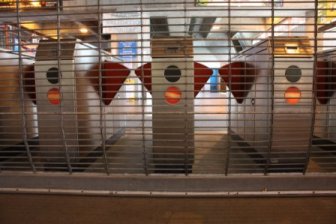 San Francisco's public transit strike enters its third day Wednesday, which will likely bring the financial toll to more than $200 million, economists estimate.
San Francisco's public transit strike enters its third day Wednesday, which will likely bring the financial toll to more than $200 million, economists estimate.
Negotiations between Bay Area Rapid Transit and union leaders resumed Tuesday evening and stretched until nearly 3 a.m., CNN affiliate KGO reported. Progress was made, but no deal was reached.
"We decided we would make more progress if we get more sleep," said Josie Mooney, chief negotiator for the Service Employees International Union in the talks, according to KGO.
The two sides plan to return to the table at 1 p.m. Wednesday, and California Gov. Jerry Brown appointed two new high-level mediators to handle negotiations, the station reported.
About 400,000 daily commuters use BART.
The Bay Area Council Economic Institute says its "conservative estimate" finds that lost worker productivity alone is costing the region at least $73 million a day. The loss of economic activity could add tens of millions of dollars to that figure, the council said.
The strike is also having "a costly environmental impact," the council said.
"Increased traffic congestion is generating almost 16 million pounds of carbon, and wasting almost 800,000 gallons of gas every day at a cost of almost $3.3 million."
The dispute centers on pay and benefits.
Unions asked for a 21 percent pay increase. BART initially offered to increase salaries by 4 percent over four years, but later proposed an 8 percent increase; that was on top of a 1 percent increase scheduled to go into effect Monday.
Roxanne Sanchez, president of SEIU Local 1021, said workers are fed up.
"Years of layoffs have affected public safety and services. Crippling cuts have not just made our jobs more difficult, but put undue strain on our livelihoods, our families and our communities," she said in a written statement.
"We are sorry that the actions of ATU and SEIU have caused such a tremendous disruption to the people of the Bay Area," BART said in a statement Tuesday announcing "no indication" that employees would return to work Wednesday.
"We are working hard to bring a fair and responsible resolution to labor talks.
BART is the nation's fifth-largest all-rail train system in the United States, with 44 stations in 26 cities that make up the Bay Area, according to the transit authority.
It handles more than 40 percent of Bay Area commuters, according to CNN affiliate KPIX.
A study last year found San Francisco among the 10 cities with the worst commutes.
Portland and Seattle
Free Subscription to Breaking News
Free Subscription to Breaking News




















































































































































































































































































































































